By Arnaldo Canciani
Part Five
Memorie.al / This first part of my memoirs, which covers a period of twenty years; 1928 – 1949, I dedicate to all those who have lived and suffered like me in Albania, to the inhumane deprivations and sacrifices of my parents and my entire family. I extend my dedication to many Africans forced to emigrate in search of better living conditions, to all the soldiers who were forced to fight in a foreign country for fleeting ideals and, many of them, have not seen their families again and are buried in a foreign land, to all those who are oppressed by dictatorial regimes and those unjustly sentenced to death, to prisoners, to those who have suffered unimaginable torture.
Continues from the previous issue
The transfer of Italian workers
On July 24, a new law came into force that regulated the currency exchange rate: for every 5 old leks, they gave one new one. This was the communist system, to fight inflation. On July 27, I asked to speak with the new director; my father had received an order to be transferred to Peshkopi. At that time he was 61 years old. I asked him to cancel the order, but his answer was no!
I let myself be overcome by my impulsive nature and committed a great irresponsibility, because I replied with unpredictable consequences, telling him in Albanian that he was acting like a slave trader. On October 3, my father and Primo Pecorari had reached their new destination, on the border with Yugoslavia, where a road was being built that would connect the city of Kukës with Peshkopi. It was called the “Road of Youth.”
Most of the workers were young volunteers who worked without pay, only to avoid revenge from the regime; they were followed, suspected, or were relatives of persecuted persons. My father, a bricklayer, and Primo Pecorari, a carpenter, were involved in the construction of bridges.
The conditions were inhumane, in a mountainous area, with a cold winter; they slept in a tent, and the food was insufficient, cooked by improvised cooks. The next day, I was summoned by the head of the central personnel office, Dhimitër Laçka, a former factotum, who gave me a letter transferring me to Rubik.
I had three days to vacate the house and leave Devolli, where I had spent twelve years of my life. I was temporarily allowed to stay with my mother and Albina, my sister, at my brother-in-law’s house, Camoni. After the discussion I had with the director, there was not much time to act on my duty. On the morning of October 8, the minimal necessary belongings were loaded onto a truck, and I set off towards the unknown.
In the communist dictionary, the word humanity does not exist! We arrived at our destination late in the afternoon; my friend, Fernando Parmigiani, helped me unload and arrange everything needed for the house in the infirmary, waiting to be settled in an environment.
Rubik could not be considered a real town, just a few houses, a narrow valley between two mountains, and a bridge over the Drin River that connected its sides. The road continued along the left bank of the river, heading north towards Shkodra. On this side, all the houses and infrastructure that were part of the mine were scattered.
The distance from where I was working in the workshop to the canteen was 157 steps, which I had to climb and descend several times a day. In the underground galleries, dozens of workers worked to extract chalcopyrite ore, which was melted in the smelting furnaces to produce copper. The melted ingots came to be processed in Italy.
The mining activity was suspended after the capitulation on September 8, 1943, and was taken over by the Albanians with the help of the Italian personnel who remained in the country. In the personnel office, I met Andrea, an Albanian employee who had worked for several years in the saws with Silverio.
I had known him in Devolli at their house, but I had not seen him for years. It was he who recognized me and whispered, telling me to be careful because I was considered a subject to be watched by the political commissar. He had been appointed a few months earlier because he had led a trial against an Albanian technician accused of sabotage.
Sentenced to death, he was hanged and left for three days, hanging on the gallows, in the street. The rope had broken in the presence of all the staff, creating a horrifying and macabre circumstance. The population of Northern Albania was mainly Roman Catholic; the last remaining priests were charged with supplying arms to suspected rebels.
Pre-fabricated and false accusations
Even though all the work was not yet finished, on October 24 the “Road of Youth” was inaugurated. On November 1, my father came from Kukës to Rubik, while he had to go to Tirana. He stayed with me for three days and on November 8; he continued his journey to the capital, where he received a telegram for a transfer to Kërrabë, 38 km away from Tirana, on the road to Elbasan.
In this place, a fossilized coal mine was reactivated, and it became necessary to build a cable car to transport the ore to the valley near the road. For my father, the situation from a logistical aspect had worsened; he continued to be alone. Pecorari, with whom he had worked together in Peshkopi, had been transferred elsewhere.
Even though my stay at the Rubik mine was nearing its end, the most urgent works had been completed, the furnace had resumed regularly, and I was waiting for communication for the new destination. I hoped that I could return to Devolli, where my mother and sister were waiting, but unfortunately, the trouble had only just begun. I left Rubik on December 14 and had to report to the Directorate of Mines in Tirana. I took a few days off to go and visit my family.
I was forced to make a two-day stop at the crossroads at Ura Zeze to find a place to store all the household furniture that I had brought with me. I resumed the journey to Devolli where I spent two days with my family. I left on the 18th, boarded a train for Durrës, and arrived in Tirana on December 20.
The next day I went to the ministry, where I was received by engineer Ceka, who told me that I was no longer dependent on the Ministry of Mines. I was transferred to the workshop on Durrës Street, where repairs and services for power plants were carried out.
I spent Christmas with my father, and on the 26th, St. Stephen’s Day, I started working at the new workplace. The last day of this unhappy year, and the first day of 1947, passed meditating alone in the room of the “Nacional” Hotel, which my father had previously occupied.
A year that had created serious problems and suffering for me had ended, and this was an obligation to ask myself what the hardships and difficulties I would have to overcome in the near future would be! Questions that was not easy to answer.
Family reunion
Finding a way for the family to be reunited was the problem that bothered me. With my father, who came to Tirana from Kërrabë, we agreed with Sotiri, the hotel owner, to rent a room on the first floor, with a private entrance to a courtyard that opened onto the street. On January 25, 1947, my father returned and went to Devolli to pick up my mother. We temporarily thought of using the hotel room, waiting to find a better place.
At the end of January, I went to Ura-Zeze (Fushë-Krujë) to get the household furniture that I had left there. On February 11, my father and mother returned from Devolli. We immediately started work to arrange the four beds, the table, and the stove that also served to heat the room, four chairs, and two pieces of furniture. The clothes were hung on hangers, and coats and other clothes were put in suitcases under the beds. The services in the hallway, without equipment, we shared with the owner’s family.
This was the situation, which unfortunately we had to go through for more than two years, until the day of our return. I had great regret for the house in Devolli! In the period preceding my mother’s arrival, and even after, I knocked on many doors to get a better house, but to no avail, so I had to give up on a single hotel room.
In compensation for this, the family was reunited. My father, for a period, started to come more often, even though he had to walk 38 km due to the lack of means of transport. Living in the city offers some advantages compared to living in small urban areas, where the residence is combined with the construction site.
After the workday, I had the impression that I could breathe more freely; I did not feel the oppressive individuality on my head. I walked the streets and met so many people I did not know, and I was sure I was not known. I had the feeling that I was freer, but perhaps this was just an illusion.
My room had become a reference point for all my friends in Devolli and Rubik who, from time to time, came to Tirana. We would meet in a bar on the boulevard, called “Shpella,” to exchange news, memories, and hopes. In the evening, but especially on Sundays, this place became a meeting place for all Italians. The owner would notify us with a conventional word when someone suspicious entered, and this allowed us to stop compromising conversations.
The food situation was critical; the primary necessity foods were rationed: half a liter of fuel oil per month for four people, as well as sugar, pasta, meat, and so on. The queue outside the shops started at four in the morning; at 8:00 AM, my sister would go and replace my mother in the queue. The bread was made with unsifted corn flour, cooked with water in round and flat shapes (Babanace).
I have seen my mother deprived many times, as she could not even cook soup for me. The communist leaders and Yugoslav and Soviet technicians had exclusive shops just for them, and they were equipped with everything, while the people were tightening their belts. The Russians were the exporters of everything the Albanian economy made, in exchange for weapons. The population at that time was about one million people: 100,000 in the army and a little more in various prisons.
Torture, Trials, Executions
On September 10, 1947, the trial of the 25 defendants began. This tragic farce did not take place in a courtroom, but in a hall of the National Cinema, next to the hotel where we lived. During the sessions, the area was patrolled by the police; loudspeakers transmitted the different phases of the debate outside. From the torture in prison, no one could resist. Everyone had to recite the parts that had been extracted from them in this tragedy.
They all declared self-guilt. The verdict was announced by the fanatics present in the hall, who when each defendant was called to testify, shouted: “Death! With death!” I heard the last words expressed by the engineer Paul Saggiotti: “I believe in your justice.” In his voice, there seemed to be a hint of irony. He was a learned man and knew that justice could not coexist with communist doctrine.
On October 22, 1947, the verdict was given: 16 death sentences out of 25 defendants. Three sentenced to hanging, 13 to be shot; one of them was Saggiotti. Monaldi and Andena ended up with a sentence of 15 years. I do not know exactly where the gallows were set up for the three sentenced to hang; on that day, by chance, while passing through “Sheshi della Legna” with my niece Nina, an unexpected and sad scene appeared to me!
Three bodies were hanging, and a group of children were pulling them by their legs, spinning the ropes and then releasing them again to watch them spin in the opposite direction. I left, pulling the child by the hand, into an adjacent alley.
One day, with my sister Albina, I went to see Monaldi in prison, on the road to Shkodra. I was allowed to see him for a few minutes and exchanged a few words. The hall consisted of two rows with iron bars; the space that separated the prisoners from the visitors was three meters. I left a package of food, but it was kept by the guards.
On October 28, 1947, Albania had ratified the Peace Treaty with Italy in Paris; but our situation continued to remain unchanged. I was transferred from Devolli when Dr. Mandolini, Sister Pasquina, and Father Scalvini were arrested, so it was not possible to specify the date of the arrest. Locked in various prisons for a long time, nothing was known about them, but later I found out that Mandolini had been transferred to Tirana.
It was not easy to find him! The capital was then divided into 14 units, with their own police departments, equipped with cells for holding the condemned, where the prisoners were first interrogated and then transferred to one of the two main prisons.
In the brewery that I had frequented with my friend, Batani, I was introduced to a new Albanian officer from Gjirokastra. I had met him from time to time and exchanged a few words of courtesy with him in Albanian. It was just a mutual sympathy, but I was risking and afraid to ask him if he could help me find my friends. I saw him again a day later, and he gave me some signs about the police sections where I was more likely to find him.
This was a Sunday, November 14, 1947, and after several attempts in different police regions, I managed to find the prison where Dr. Mandolini was held. I introduced myself to the guards, asking to see him. I had to answer many questions and explain the reasons for my request. In the end, they told me that, being in isolation, he was not allowed to meet and talk to anyone. I left a package of food, which they opened to check, and they assured me that it would be delivered.
From then on, until the end of the following year, I had no news from him. The year that was ending was difficult and important. On the horizon, I could not see even a ray of light. My father was transferred again, first to Korçë, then to Elbasan. He had already reached 63 years of age, and I wonder now how he could overcome so many hardships. The work in the workshop was hard: beyond the normal time, we were forced to do an extra unpaid hour. I was the only one of the Italian workers who did not obey this abusive order.
I was not allowed to judge others: but we lived in an atmosphere of terror, and this could cost us dearly if I expressed myself openly about it. I was accused of sabotage for a problem that had occurred in the machine I worked on; my knowledge of their language helped me to win their trust. Near our building, another one was built, used as a cast-iron foundry, where technicians and workers who had come from Yugoslavia worked.
Tito, based on a treaty of mutual assistance, had various mandates to work in Albania and received salaries four times higher than ours, even though they were not at the level of training and preparation as the Italians. To supplement my low income, in the evening I repaired machines in various printing houses. At that time, I had the feeling that something was changing. Memorie.al





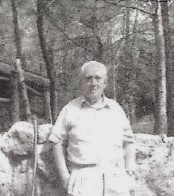
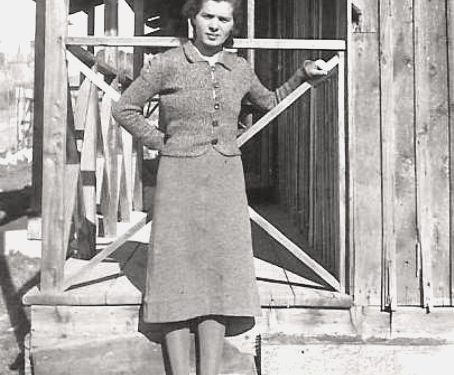
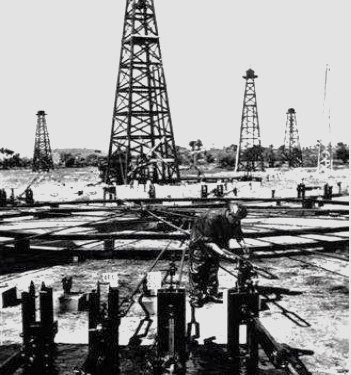
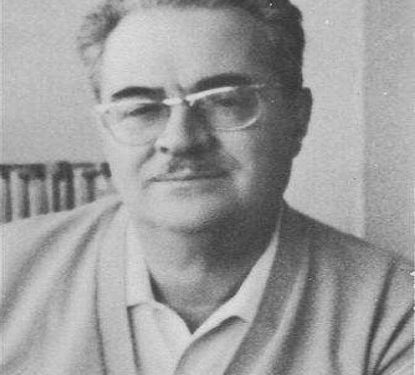
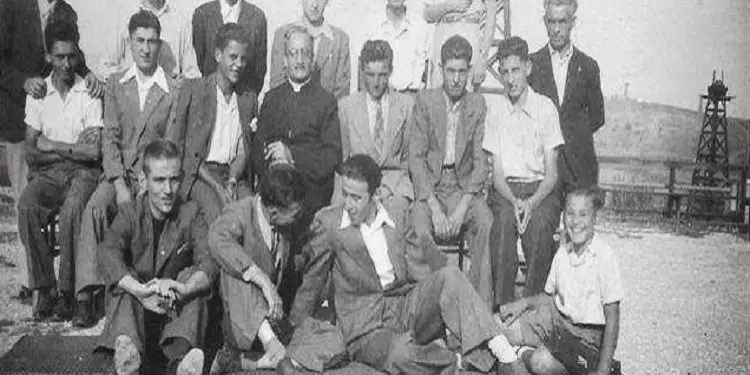


![“When the party secretary told me: ‘Why are you going to the city? Your comrades are harvesting wheat in the [voluntary] action, where the Party and Comrade Enver call them, while you wander about; they are fighting in Vietnam,’ I…”/ Reflections of the writer from Vlora.](https://memorie.al/wp-content/uploads/2025/06/admin-ajax-4-350x250.jpg)


![“The ensemble, led by saxophonist M. Murthi, violinist M. Tare, [with] S. Reka on accordion and piano, [and] saxophonist S. Selmani, were…”/ The unknown history of the “Dajti” orchestra during the communist regime.](https://memorie.al/wp-content/uploads/2026/02/admin-ajax-3-350x250.jpg)
![“In an attempt to rescue one another, 10 workers were poisoned, but besides the brigadier, [another] 6 also died…”/ The secret document of June 11, 1979, is revealed, regarding the deaths of 6 employees at the Metallurgy Plant.](https://memorie.al/wp-content/uploads/2026/02/maxresdefault-350x250.jpg)

